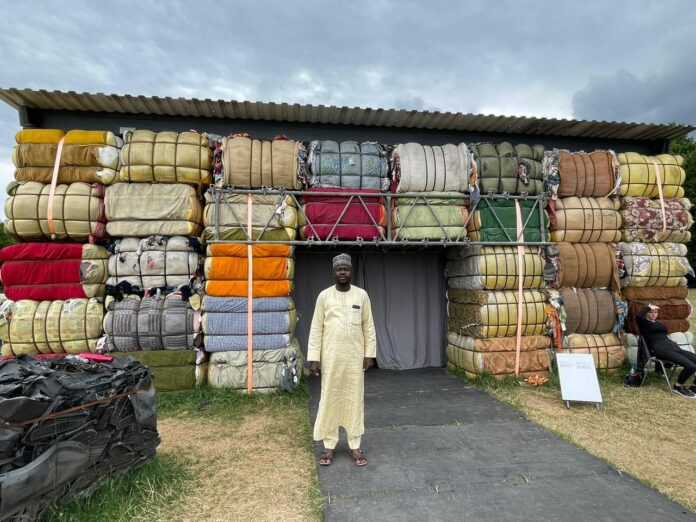My Journey to Kassel (Documenta Fifteen) and Lessons for Nigeria’s Waste Management, By Ibrahim Uba Yusuf
POLITICS DIGEST- Since I arrived in Germany to complete the last lap of my PhD studies, I intended to start a travelogue on cultural shock. My quest suffered a setback for two reasons. Firstly, I have a tight working schedule for writing my thesis on the Culture Industry (Hausa home videos) and their contribution to peacebuilding in the northern part of Nigeria.
Dealing with various raw data, literature, doctoral colloquium, and International Conferences was overwhelming.
Secondly and sadly, I lost my stepmother Hajja Aishatu (may Allah have mercy on her soul), who has been caring for us, including our aged father, since my mother died in 2002.
Her death threw me into a state of confusion and thus compelled me to suspend it.
Now to the issue: the journey to Kassel. It was Eid-el Adha globally. Since it is not the first time I am experiencing Sallah outside Nigeria, I envisaged it will be dry. After observing the two voluntary Eid Prayers at about 6:10 am (German time), I proceeded to Hauptbahnhof (the central train station). The journey is about an hour on the ICE train (the fastest train in Germany) and about three hours on regional trains (which are slow but relatively cheaper) from Hildesheim.
The journey to Kassel marks the end of a week-long UNESCO Symposium on Artistic Interventions in educational and social contexts. It was organised by the UNESCO Chair, Professor Julius, who doubles as my German Supervisor.
Read Also:
Documenta is one of the largest art exhibitions in Germany which started in Kassel in 1955, with the sole aim of displaying a variety of contemporary artworks such as sculpture, film, photography and painting among others. Held every five years, this is the fifteenth edition of the International engagement for arts. During the exhibition walk to various exhibition stands, I became interested in the open cinema located in Karlswiese. This is due to my bias in broadcasting and film studies. The open cinema, a work by The Nest Collective is tagged ‘Return to Sender—Delivery Details 2022’. It was locally constructed from dystopian waste to mimic the Global North. The dystopian waste was carefully packaged to serve as acoustic panels for the cinema walls to control external noise and echo.
In all honesty, this is my first time seeing such an amazing innovation. The scrap of electronic devices imported to the Global South were packaged and displayed for exhibition. The message embedded in this tag ‘Return to Sender’ of course, suggests the frustration by the Global North and the radical position taken to mitigate not only importation but waste management. This dystopian waste introduces a new alternative to the existing acoustic panels in our television and radio studios, which is economical and easy to construct. In contrast to other acoustic panels, the installations offer a better aesthetic and sound control. I strongly recommend this innovation to our local cinemas (viewing centres), public and private broadcast stations as well as Departments of Mass Communication and Performing Arts. I am not unmindful of the digitization drive. While we continue the digitization plan, I believe this can serve as an alternative that may be attuned to the sustainability discourse.
Unfortunately, Nigeria is among the countries with poor waste management. The Environment Performance Index (EPI) 2022 ranked Nigeria 168 out of 180 countries. Also, a report United Nations Industrial Development Organization shows that Nigeria produced 32 million tonnes of waste annually. With this record, Nigeria stand a chance of changing the negative discourse on environmental health, hygiene and sustainability.
Nigerians must change their non-challant attitude of indiscriminate waste disposal. As I write this article, one of my greatest challenges of living in Germany, is separating the waste into the appropriate trash cans. In Germany, paper, plastic and organic bio-waste are separated. Waste separation is comprehensive and taken seriously by both Germans and the government.
While there is absence of Recycling Plant in the country, however, the Baban Bola (those involved in picking important litters from one dump yard to the other), for instance can be utilised and strengthened to ensure a clean environment. The services rendered by these people deserves special recognition. We must begin this campaign from our homes, schools, worship places, media and markets.
Nigeria deserves to be clean.
Ibrahim Uba Yusuf wrote from Germany and can be reached at [email protected]

















